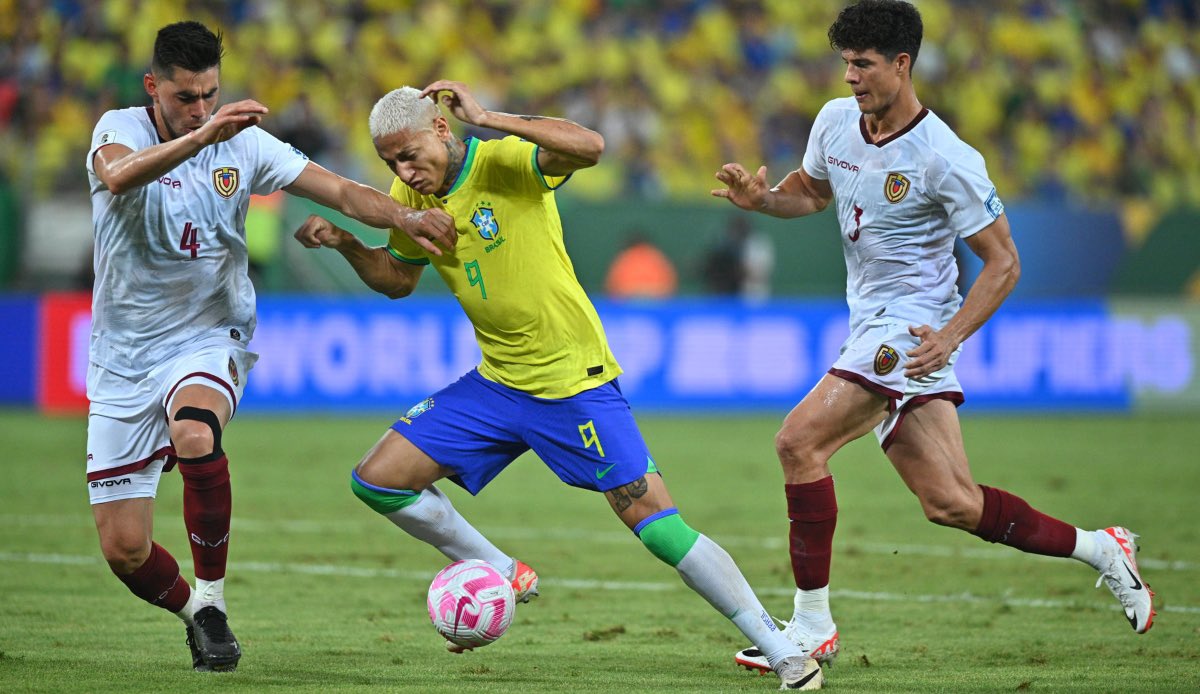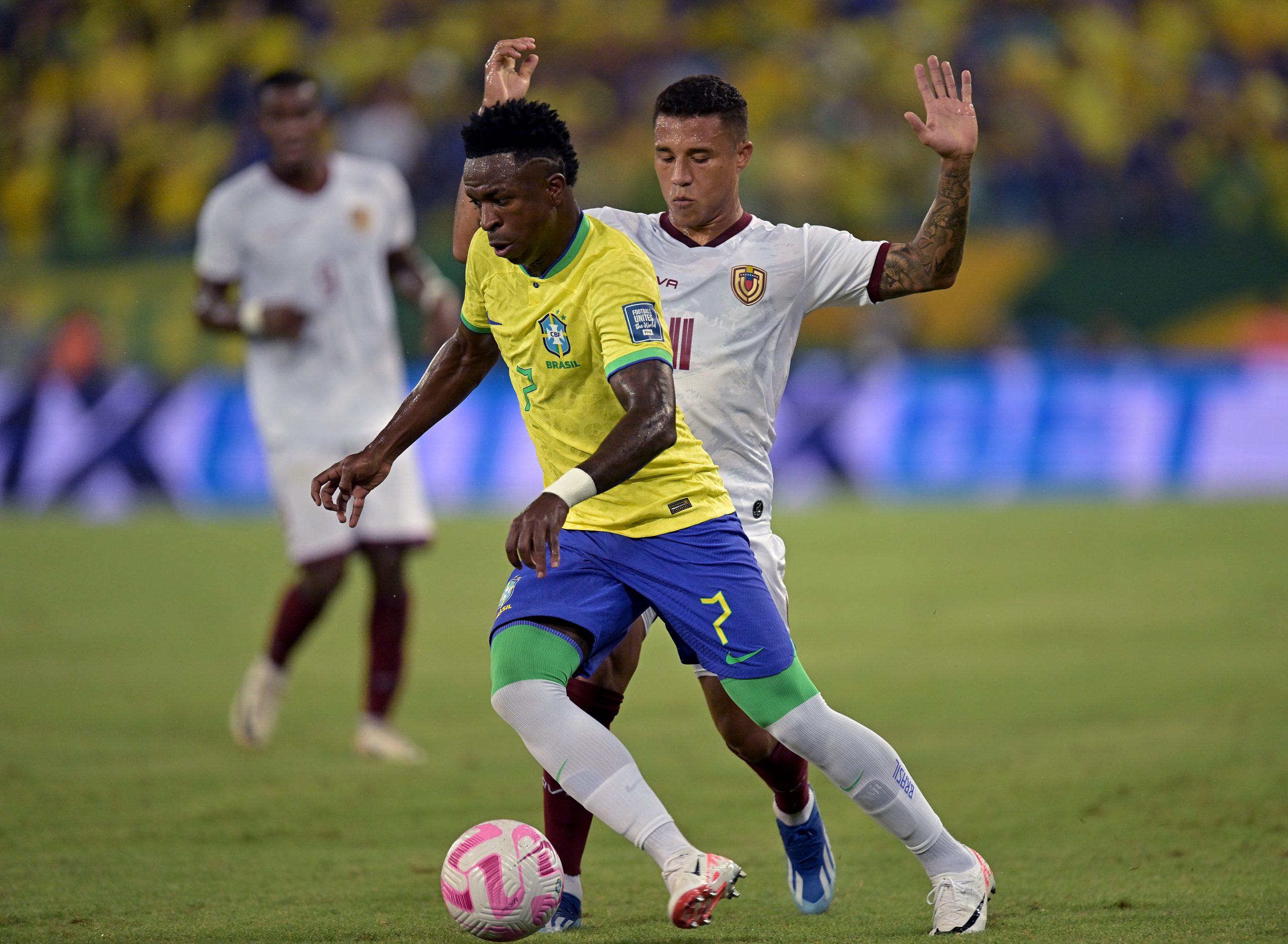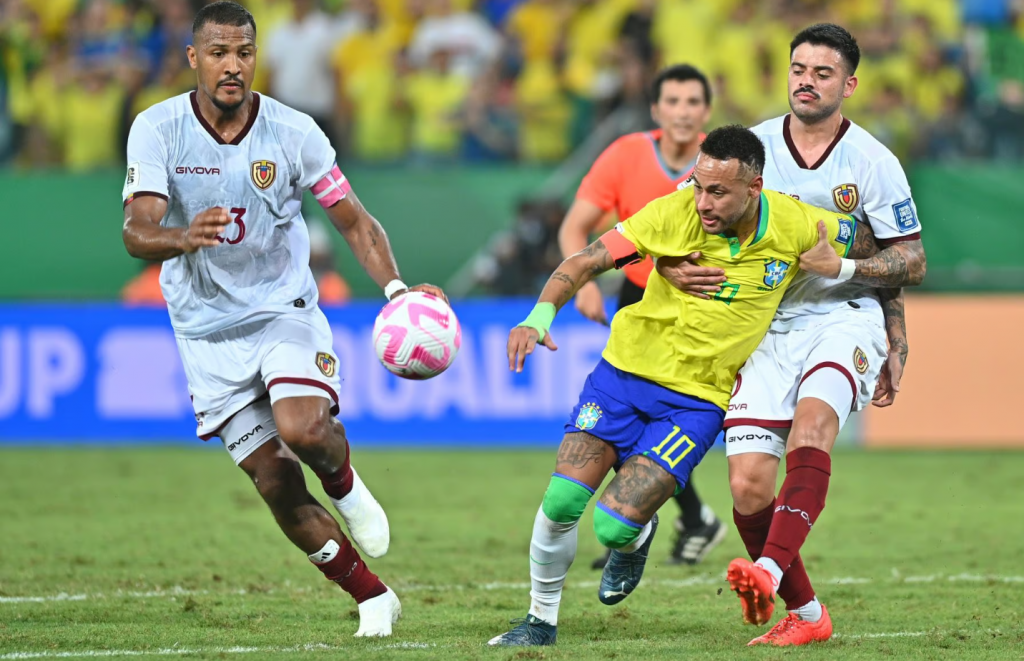Author: Soorya G
In South American qualifying for the World Cup, Brazil found themselves in a shocking draw with Venezuela in the third round of CONMEBOL qualifying for the next edition of the FIFA World Cup in 2026. Facing the leaders, the Venezuelans took on this challenge with courage, earning a historic 1-1 draw that keeps their dream of their first World Cup appearance alive. The draw against Venezuela ended the Seleção’s 15-game unbeaten streak in World Cup qualifying in Brazil, dating back to their last draw against fellow giants Uruguay.

Arsenal defender Gabriel Magalhaes scored a stunning header to open the scoring for his team, a goal that was quite significant in the context of his problems with former coach Tite. There was much celebration as Neymar provided the assist. On the other side, the unexpected equalizer came in the final minutes, courtesy of Eduard Bello, with the Mexican first division player scoring a goal with just five minutes left on the clock.
The match, held at the Arena Pantanal in Cuiabá, saw the five-time World Cup winners dominate proceedings but fail to convert their superiority into a decisive lead. Once again, it was clear that the Brazilian national team lacks a clinical center-forward capable of taking advantage of critical moments in matches, and Richarlison failed to impress once again.
Despite Gabriel’s goal, the Venezuelans stood firm and held on to the partial result, waiting for the right opportunity. Mazatlan’s number nine, Eduard Bello, had the last word, closing the scoring five minutes from time as Venezuela drew 1-1.
If Vinicius’ goal in the second half (with the score at 1-0) had been allowed, Brazil would probably have won. But would this victory be useful for the development of the squad? After all, it’s not about a specific clash, but about the general trend of the national team’s development. The result generated some comments from experts who thought that the Seleção had declined from its astronomical peaks, taking as an example the eliminations in the last World Cups and Copa America. The draw means Venezuela’s second against Brazil, a happy detour from their ten defeats in World Cup qualifying.

Brazil’s aspirations for the 2026 World Cup will require correcting this deficiency in front of goal if the country is to compete at the highest level of international soccer. Although the Canarinha’s attacking trio dazzle with their skills, the absence of a real striker capable of converting chances remains a glaring gap in the team. The historic run of 15 consecutive wins has instilled a sense of invincibility in the Brazilian team, but this draw serves as a valuable wake-up call.
Brazil’s journey to the 2026 World Cup is still in its early stages, and this result should serve as motivation to re-evaluate its strategy and develop the squad to ensure the country maintains its status as a soccer powerhouse.


